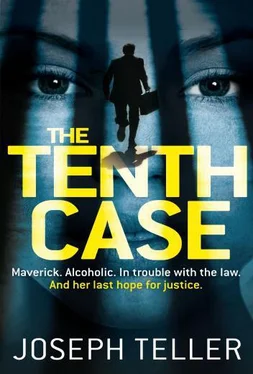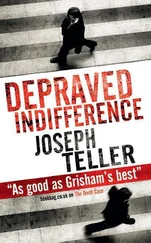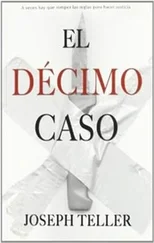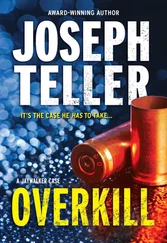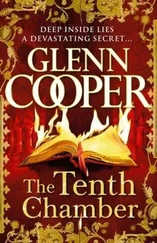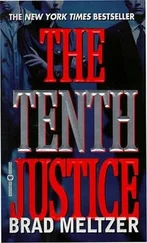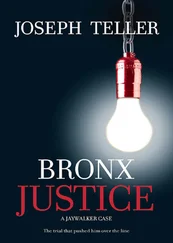Joseph Teller - The Tenth Case
Здесь есть возможность читать онлайн «Joseph Teller - The Tenth Case» — ознакомительный отрывок электронной книги совершенно бесплатно, а после прочтения отрывка купить полную версию. В некоторых случаях можно слушать аудио, скачать через торрент в формате fb2 и присутствует краткое содержание. Жанр: Криминальный детектив, на английском языке. Описание произведения, (предисловие) а так же отзывы посетителей доступны на портале библиотеки ЛибКат.
- Название:The Tenth Case
- Автор:
- Жанр:
- Год:неизвестен
- ISBN:нет данных
- Рейтинг книги:3 / 5. Голосов: 1
-
Избранное:Добавить в избранное
- Отзывы:
-
Ваша оценка:
- 60
- 1
- 2
- 3
- 4
- 5
The Tenth Case: краткое содержание, описание и аннотация
Предлагаем к чтению аннотацию, описание, краткое содержание или предисловие (зависит от того, что написал сам автор книги «The Tenth Case»). Если вы не нашли необходимую информацию о книге — напишите в комментариях, мы постараемся отыскать её.
The Tenth Case — читать онлайн ознакомительный отрывок
Ниже представлен текст книги, разбитый по страницам. Система сохранения места последней прочитанной страницы, позволяет с удобством читать онлайн бесплатно книгу «The Tenth Case», без необходимости каждый раз заново искать на чём Вы остановились. Поставьте закладку, и сможете в любой момент перейти на страницу, на которой закончили чтение.
Интервал:
Закладка:
"So, jurors, there's an easy way to look at this case, and a hard way. Mr. Burke makes it all sound easy. In fact, he's already told you that at the end of the trial he'll be asking you to convict Samara. He's told you that, as a matter of fact, before you've had a chance to hear one single word of testimony. Think about that for a minute. Me? I'm not asking you to acquit Samara. I have no right to do that at this point, not before you've heard the evidence. What I'm asking you to do instead- all I'm asking you to do, in fact-is to take both journeys, the obvious one and the notso-obvious one, the easy one and the hard one. I'm asking you to listen with both ears, to watch with both eyes, and, if you detect something a little foul in the air, to smell with both nostrils.
"Who's framing Samara? I don't know. I wish I did, but I don't. Maybe the evidence will yield a clue or two. Maybe not. But remember this-I have no burden of proof in this trial. I don't have to identify the framer. Nor do you. At the end of the day, it will be enough if you walk back into this courtroom, look us squarely in the eye and tell us that, having taken both journeys through the evidence, you are unable to say that you are convinced that my client is guilty of murder, and that you are certainly unable to say you are convinced beyond all reasonable doubt."
He turned from them, walked back to the defense table and sat down. He'd spoken for almost half an hour. He had no idea if he had them or not. At very least, though, he'd presented them with a theory-a proposition, he'd called it-and none of them had laughed. That itself he counted as a victory of sorts.
The bad news, of course, was that the evidence was about to begin.
19
"The People call Stacy Harrington."
A lot of prosecutors like to start off with a bang, calling a key witness first. While this practice makes for exciting TV drama, it often accomplishes little more than confusing jurors.
Tom Burke was anything but a showman, and drama was the last thing he was interested in. In the choice of his leadoff first witness, he made it clear that it wasn't ratings he was after, but chronology and clarity.
Stacy Harrington, small, black and attractive, was employed as an executive assistant-a new title for the old job Jaywalker had grown up calling a secretary-in the offices of Tannenbaum International, Barry Tannenbaum's flagship company. She'd been among the first to notice Barry's lateness in showing up one August morning, a year and a half ago. And the thing about Barry, at least one of the many things about Barry, was that he was never late for anything.
MR. BURKE: What did you do, when he didn't show up?
MS. HARRINGTON: I called his home, both homes.
MR. BURKE: And?
MS. HARRINGTON: He didn't answer.
MR. BURKE: At either place?
MS. HARRINGTON: At either place.
MR. BURKE: What did you do then?
MS. HARRINGTON: I called the police.
MR. BURKE: Which police?
MS. HARRINGTON: The New York City police. It was my understanding that
Barry, that Mr. Tannenbaum, was staying in the city. And that way was easier. I just di aled 9-1-1.
MR. BURKE: And what, if anything, did the police tell you?
MS. HARRINGTON: They recognized the name.
They said they'd send some one over, and would contact the Scarsdale police and have them do the same up there.
Jaywalker asked no questions of Ms. Harrington. His rule of thumb was that less was better, and none was even better than less. Too many cross-examiners insisted on making a show of questioning every witness called by an adversary. To Jaywalker, that made no sense at all. If a witness hadn't said anything to hurt his client, why disguise that fact by asking questions? Why not instead highlight it by shrugging and saying that you had no questions?
Joseph Teller
The Tenth Case
Burke called Anthony Mazzini. Mazzini was the super intendent of the building in which Barry Tannenbaum had a penthouse apartment. Around midday, two uni formed police officers had arrived at the building. They'd explained that Mr. Tannenbaum hadn't shown up for work that morning, and that people at his office were con cerned for his welfare. After unsuccessfully trying to reach Tannenbaum by intercom and telephone, Mazzini had taken the officers up to the penthouse. There he'd rung the doorbell and knocked on the door, getting no response. Eventually he'd unlocked it with a passkey. The door hadn't been chained or bolted from the inside, and the alarm had been off. Mazzini had followed the officers inside.
MR. BURKE: Did you find anything unusual?
MR. MAZZINI: Unusual? Yeah, plenty.
There was a ripple of nervous laughter from the jury box.
MR. BURKE: What was it?
MR. MAZZINI: We found Mr. Tannenbaum laying on the kitchen floor in a mess of blood.
Once again, Jaywalker had no questions. Mazzini was actually on his short list of suspects, but he knew that now was no time to go after him. For one thing, the rules of evidence limited cross-examination to those topics covered in direct examination. If Jaywalker wanted to attack the super, he would have to call him later, during the defense case, and, if need be, have him declared a hostile witness. But even beyond that technical consideration, what was he going to do? Come right out and ask Mazzini if he'd murdered Barry and framed Samara?
Burke called Susan Connolly, one of the two "first officers" to arrive at the scene. Officer Connolly had quickly determined that Tannenbaum was dead, and had probably been dead for a number of hours. She and her partner had established a crime scene, prohibiting any un authorized personnel from entering, and seeing to it that nothing was moved or otherwise disturbed. Then they'd called their precinct commander, who'd told them to wait there until the detectives arrived.
MR. BURKE: Which way was the body facing?
P.O. CONNOLLY: Excuse me?
MR. BURKE: Was the body lying faceup or facedown?
P.O. CONNOLLY: Facedown, mostly.
MR. BURKE: Did either you or your partner ever turn it over?
P.O. CONNOLLY: No, sir.
MR. BURKE: Thank you. No further questions.
At that point Jaywalker decided he might as well take a shot and see if he could raise some questions about the previous witness.
MR. JAYWALKER: What about Mr. Mazzini, the super? What did he do?
P.O. CONNOLLY: He didn't touch him, neither.
MR. JAYWALKER: No, not what he didn't do, what he did do.
P.O. CONNOLLY: When?
MR. JAYWALKER: The entire time he was in the apartment.
P.O. CONNOLLY: I don't know. Stood around, mostly. Looked around.
MR. JAYWALKER: Looked around in various rooms?
P.O. CONNOLLY: I guess so.
MR. JAYWALKER: You yourself stayed with the body, though. Right?
P.O. CONNOLLY: Right, once we'd secured the area and made sure that there was no one else in the apart ment.
MR. JAYWALKER: I see. How long did it take be fore the detectives arrived?
P.O. CONNOLLY: (Refers to memo book)
Twenty-five minutes.
MR. JAYWALKER: When they arrived at the apart ment, did they have much con versation with Mr. Mazzini?
P.O. CONNOLLY: Some. I wouldn't say much.
MR. JAYWALKER: So he was still there?
P.O. CONNOLLY: I'm not sure.
MR. JAYWALKER: Didn't you just tell us the de tectives had some conversation with him when they arrived at the apartment?
(No response)
MR. JAYWALKER: Was Mr. Mazzini still there?
P.O. CONNOLLY: Yes.
MR. JAYWALKER: So by that time, he'd been there a good half an hour, right?
P.O. CONNOLLY: I guess so, right.
MR. JAYWALKER: Like you said, standing around, looking around in various rooms?
P.O. CONNOLLY: Right.
If it wasn't much, at least it was a start. It showed that the super, who had a passkey, had also had full access to the apartment the day after the murder. And that the integ rity of the crime scene had been compromised, a fact that jurors raised on a diet of O.J. and CSI might find troubling.
Читать дальшеИнтервал:
Закладка:
Похожие книги на «The Tenth Case»
Представляем Вашему вниманию похожие книги на «The Tenth Case» списком для выбора. Мы отобрали схожую по названию и смыслу литературу в надежде предоставить читателям больше вариантов отыскать новые, интересные, ещё непрочитанные произведения.
Обсуждение, отзывы о книге «The Tenth Case» и просто собственные мнения читателей. Оставьте ваши комментарии, напишите, что Вы думаете о произведении, его смысле или главных героях. Укажите что конкретно понравилось, а что нет, и почему Вы так считаете.
